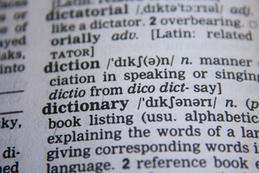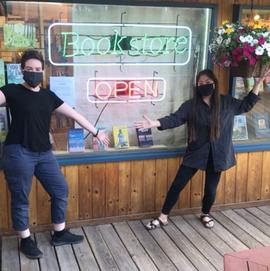
 For the past couple of months in this column, my Covid-19 coping mechanism has often been to deal with one word at a time: pivot or masks or plexiglass or after-normal or emptiness. I haven't explored the term essential because most state governments had deemed bookstores non-essential from the start of the novel coronavirus lockdowns.
For the past couple of months in this column, my Covid-19 coping mechanism has often been to deal with one word at a time: pivot or masks or plexiglass or after-normal or emptiness. I haven't explored the term essential because most state governments had deemed bookstores non-essential from the start of the novel coronavirus lockdowns.
Little did they know that indie booksellers would quickly find ways to make themselves absolutely essential to self-isolated readers by deftly adapting to the restrictions with increased online sales, free local delivery, curbside pickup and more. It's what indies do best: look at the cards they're dealt and play the hand skillfully.
Now bookstores must tentatively explore the many and vague definitions of another word--reopen. Depending upon an indie bookseller's state and state of mind, the new challenges and rules are, once again, daunting. But words, individually as well as gathered together in powerful sentences, have always been our strength.
 Since March, an apoca-lexicon has taken shape around Covid-19, with the sudden rise and common usage of terms like shelter-in-place, lockdown, social distancing, price gouging, rona, PPE, asymptomatic, self-isolation and so many more.
Since March, an apoca-lexicon has taken shape around Covid-19, with the sudden rise and common usage of terms like shelter-in-place, lockdown, social distancing, price gouging, rona, PPE, asymptomatic, self-isolation and so many more.
"One of the primary functions of language is to express identity, and there is something communal about the new vocabulary we are all acquiring during this crisis," said Dictionary.com lexicographer Heather Bonikowski recently. "When we use these new Covid-19 words with each other, we are showing our membership in a group, almost as an act of solidarity--a way to say we're all in this together."
Consider hunker down. Merriam-Webster senior editor Emily Brewster recommended "books for when you're hunkered down," noting: "Like many of you, we are a community of bookworms at Merriam-Webster, so we asked around to find what our staffers are currently reading, what we're looking forward to, and what we love. It's our hope that these picks will help bring a bit of joy to your time in quarantine."
Magic. Serendipity. Skill.
 |
|
| Valley Bookstore, Jackson, Wyo. | |
In a Bookseller column headlined "Serendipity will keep bookshops alive," Anne Welsh wrote: "With some bookshops set to reopen in a couple of weeks, it's a good time to think about some of the lockdown actions that have kept shops afloat--and why they work on buyers. At their best, bookshops are both scientific and magic.... In both libraries and bookshops, the holy grail of online discovery is not search and retrieval of items the seeker already knows, but serendipity--a word itself invented by incurable bibliophile Horace Walpole, based, he said, on a tale called The Three Princes of Serendip--'as their highnesses travelled, they were always making discoveries, by accidents and sagacity, of things which they were not in quest of.' "
Welsh noted that in a physical bookshop, classic handselling techniques move the buyer "from passively encountering a new publication by showing us new things, chatting to us, and also having us speak as we form connections in our minds. It's those connections that lead to desire for the new book, seeing it as a lucky find. It's luck based on the customer's open mind and the bookseller's knowledge of us."
She added it was no coincidence bookshops that were "quick to dive into trying out new things online in the last few weeks had confidence in knowing their regulars and what they would be missing. 'Success' for most didn't just come from tooling up online--learning to Zoom for events (without leaving themselves open to hacking). It came from the sense of community they had built up--sometimes quickly, and sometimes over a period of decades."
In a departure from normal procedures, OED has responded to the Covid-19 lexical revolution by updating its coverage more frequently, outside of the usual quarterly publication cycle, noting that "these are extraordinary times, and OED lexicographers, who like many others are all working from home (WFH, first attested as a noun in 1995 and as a verb in 2001), are tracking the development of the language of the pandemic and offering a linguistic and historical context to their usage."
One word, then another, then another. That's how I'm finding my way through this not yet new-normal Covid-19 world.

